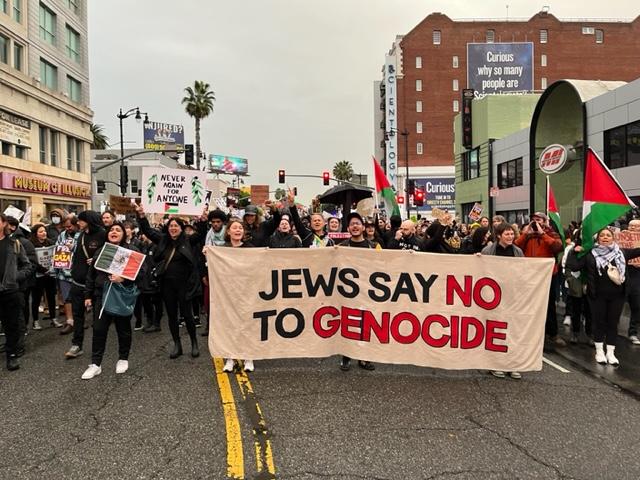Israel’s cabinet approved a ceasefire and hostage release agreement with Hamas, signaling a potential end to the 15-month war in Gaza. Prime Minister Benjamin Netanyahu’s office confirmed the framework for releasing hostages would begin Sunday, with three female captives set to be freed via the Red Cross. U.S. envoy Brett McGurk expressed confidence in the deal’s implementation, scheduled to start Sunday morning.
Despite the agreement, Israeli airstrikes on Gaza continued, with medics reporting five casualties in Khan Younis. Since the deal’s announcement, 119 Palestinians have been killed by Israeli bombardment, intensifying the humanitarian crisis in the enclave. Gaza, devastated by the conflict, has seen over 46,000 deaths and mass displacement of its 2.3 million residents.
The three-phase ceasefire includes an initial six-week period where hostages held by Hamas will be exchanged for Palestinian prisoners. Israel plans to release all detained Palestinian women and minors under 19 during this phase, with the first 95 prisoners set to return Sunday. Further releases are planned weekly.
The deal faced opposition within Israel’s government, with some hardliners labeling it a concession to Hamas. National Security Minister Itamar Ben-Gvir and Finance Minister Bezalel Smotrich threatened to resign if the ceasefire does not lead to renewed military action after six weeks.
The ceasefire aims to stabilize the region, where the Gaza conflict has spurred broader hostilities involving Iran and its proxies. Humanitarian relief, including 4,000 aid trucks, is poised to enter Gaza, offering hope for civilians suffering from hunger and displacement. However, uncertainty lingers over the agreement’s durability and its impact on the deeply fractured region.



 Ohio Man Indicted for Alleged Threat Against Vice President JD Vance, Faces Additional Federal Charges
Ohio Man Indicted for Alleged Threat Against Vice President JD Vance, Faces Additional Federal Charges  Trump Allegedly Sought Airport, Penn Station Renaming in Exchange for Hudson River Tunnel Funding
Trump Allegedly Sought Airport, Penn Station Renaming in Exchange for Hudson River Tunnel Funding  Norway Opens Corruption Probe Into Former PM and Nobel Committee Chair Thorbjoern Jagland Over Epstein Links
Norway Opens Corruption Probe Into Former PM and Nobel Committee Chair Thorbjoern Jagland Over Epstein Links  China Warns US Arms Sales to Taiwan Could Disrupt Trump’s Planned Visit
China Warns US Arms Sales to Taiwan Could Disrupt Trump’s Planned Visit  Trump Rejects Putin’s New START Extension Offer, Raising Fears of a New Nuclear Arms Race
Trump Rejects Putin’s New START Extension Offer, Raising Fears of a New Nuclear Arms Race  TrumpRx.gov Highlights GLP-1 Drug Discounts but Offers Limited Savings for Most Americans
TrumpRx.gov Highlights GLP-1 Drug Discounts but Offers Limited Savings for Most Americans  TrumpRx Website Launches to Offer Discounted Prescription Drugs for Cash-Paying Americans
TrumpRx Website Launches to Offer Discounted Prescription Drugs for Cash-Paying Americans  Pentagon Ends Military Education Programs With Harvard University
Pentagon Ends Military Education Programs With Harvard University  U.S. Lawmakers to Review Unredacted Jeffrey Epstein DOJ Files Starting Monday
U.S. Lawmakers to Review Unredacted Jeffrey Epstein DOJ Files Starting Monday  U.S. Sanctions on Russia Could Expand as Ukraine Peace Talks Continue, Says Treasury Secretary Bessent
U.S. Sanctions on Russia Could Expand as Ukraine Peace Talks Continue, Says Treasury Secretary Bessent  NATO to Discuss Strengthening Greenland Security Amid Arctic Tensions
NATO to Discuss Strengthening Greenland Security Amid Arctic Tensions  UAE Plans Temporary Housing Complex for Displaced Palestinians in Southern Gaza
UAE Plans Temporary Housing Complex for Displaced Palestinians in Southern Gaza  U.S. to Begin Paying UN Dues as Financial Crisis Spurs Push for Reforms
U.S. to Begin Paying UN Dues as Financial Crisis Spurs Push for Reforms  Ukraine-Russia Talks Yield Major POW Swap as U.S. Pushes for Path to Peace
Ukraine-Russia Talks Yield Major POW Swap as U.S. Pushes for Path to Peace  Marco Rubio Steps Down as Acting U.S. Archivist Amid Federal Law Limits
Marco Rubio Steps Down as Acting U.S. Archivist Amid Federal Law Limits  Iran–U.S. Nuclear Talks in Oman Face Major Hurdles Amid Rising Regional Tensions
Iran–U.S. Nuclear Talks in Oman Face Major Hurdles Amid Rising Regional Tensions 































